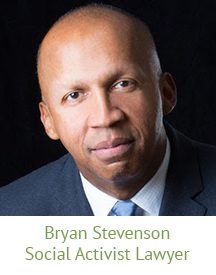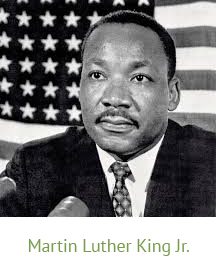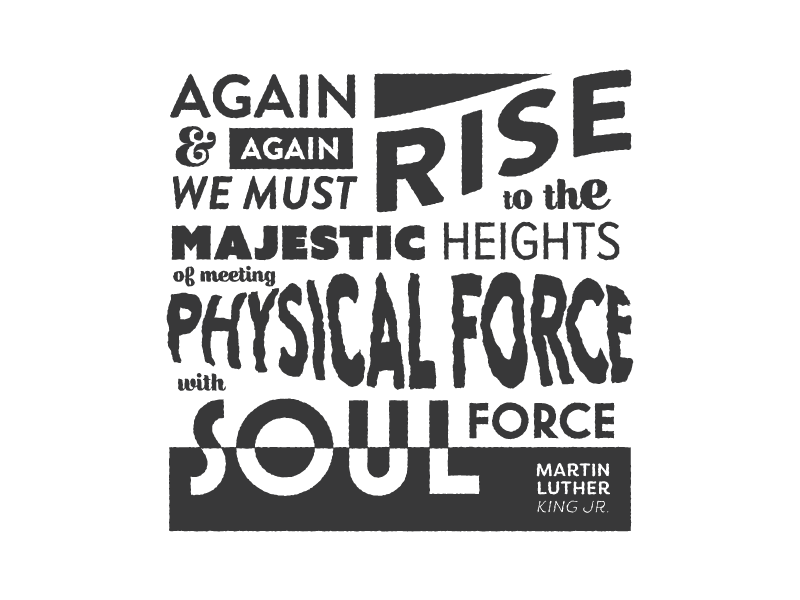A Little Mercy, A Little Justice, and A Little Unmerited Grace
A Little Mercy, A Little Justice, and A Little Unmerited Grace
Lory Beth Huffman
Senior Pastor

Yesterday afternoon I was reflecting about Martin Luther King, Jr. on the eve of the day which honors him with a national holiday. Simultaneously some friends and I went to see the movie Just Mercy about Bryan Stevenson, a Harvard trained lawyer who comes to Alabama to assist inmates on death row get a fair hearing. This particular movie focuses on his work with innocent inmate Walter McMillan who he got released in 1993 after 5 years on death row for a crime he did not commit.
Yesterday afternoon I was reflecting about Martin Luther King, Jr. on the eve of the day which honors him with a national holiday. Simultaneously some friends and I went to see the movie Just Mercy about Bryan Stevenson, a Harvard trained lawyer who comes to Alabama to assist inmates on death row get a fair hearing. This particular movie focuses on his work with innocent inmate Walter McMillan who he got released in 1993 after 5 years on death row for a crime he did not commit.It was a well told story and if you haven’t seen the movie, you should. What struck me most of all as incident after incident of racial injustice and pure morally indecent behavior is that this all took place between 1987 and 1993. I was in college. This wasn’t Civil Rights era back in the 50’s and 60’s. An unfortunate reminder to me in my white lens world of how far we haven’t come with race relations as I might have assumed in my lifetime.
This reminded me of a difficult but really significant conversation with a friend I had a few weeks ago. It just seems that racial tension has been building of late and she was helping me understand things from a person of color’s perspective. It was difficult conversation but immensely helpful. No matter what shade our skin is, we need help seeing things from another person’s perspective when it comes to how we view and experience life. Sadly, that is because we still live in a country where people are treated differently based on so many factors including the color of their skin. And that inconsistency can in return lead to all kinds of misunderstanding and misinterpretation of people’s actions and intentions. Race relations remains a complicated issue in 2020.
This brings me back to where I started, with Martin Luther King, Jr. As I ponder all of these points for consideration, I marvel at all that MLK was able to accomplish in such a few young years. Here are some things I learned about him in doing just a little bit of research.
- Martin Luther King Sr. changed his name from Michael to Martin in honor of the Protestant Reformation leader Martin Luther. His son chose to do the same. [This link offers some comparisons between the two that are interesting to note.]
- He was wicked smart and skipped both 9th and 11th grades starting college at age 15. He had earned a Master of Divinity from Crozer Theological Seminary in Pennsylvania and then his doctorate from Boston College by the age of 25.
- King quickly became the face and voice to the civil rights movement as his youthful energy and skillful rhetoric began to resonate and agitate across the country.
- Integral in leading to the legal ending of segregation and advocating for equal voting rights in the US he won the Nobel Peace Prize in 1964 at the age of 34.
- The creation of the Southern Christian Leadership Conference would then combine Christian moral authority with the legal and social action of the civil rights movement so that the lens of Christian teaching could be applied time and again to the injustices people of color were experiencing.
- He was assassinated before turning 40 years old.
It just strikes me that MLK accomplished so much in such a short period of time that has gone on to impact so many others. And I am still moved by his way with words that reflects the struggle of human nature and an appeal to our better selves.
But I will actually close with part of a quote from Bryan Stevenson, the lawyer advocating for justice on death row. He startlingly names a common denominator between an African American on death row and, well, me when he says,
“…we all need mercy, we all need justice, and-perhaps-we all need some measure of unmerited grace.”
“• Bryan Stevenson, Just Mercy: A Story of Justice and Redemption
I agree. Will you take a minute, or longer, today and reflect on this truth that binds all people together, no matter their background, life circumstances and all of the categories that make us different from one another? And if, in any way you can offer another mercy, justice or unmerited grace, do not hesitate to do so. Because that choice will always move the needle towards God’s Kingdom coming and God’s will being done. Every time.
Grace and Peace,
Lory Beth
RECENT POSTS FROM Faith Meets Life







